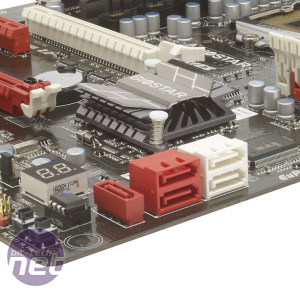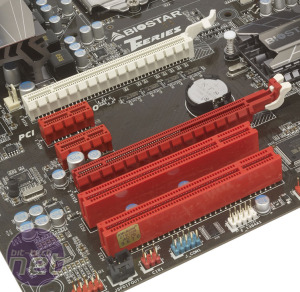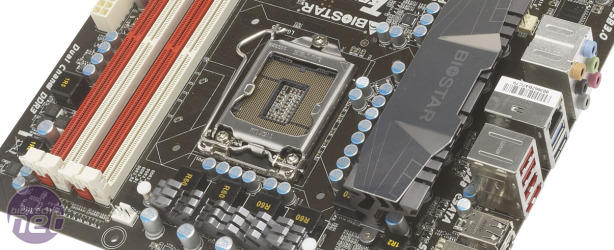
Performance Analysis
Once we’d finished examining the layout of the board, we put the Biostar to the test to see how it compared with the other boards on the market. It started in fine fashion too, as its image editing score of 1,618 points was the quickest we’ve seen from a P67 board, beating the previous champ, the £150 Asus Sabertooth P67, by four points.In a peculiar reversal of fortunes, however, the 2,673 points that the Biostar scored in the video encoding portion of the suite was the worst result we’ve seen from a B3-revision P67 board at stock speeds. Another good result in the final part of the suite brought the board’s overall score to 1,914, which is average for a P67 motherboard.
Gaming performance was more positive, as the Biostar’s minimum frame rate of 74fps at 1,920 x 1,080 with 4x AA in Arma II was one of the best results we’ve seen, and equal to that of the current Premium Grade award toting MSI P67A-GD53(B3). Its average frame rate was also impressive, actually beating the GD53. This is still slower than the Sabertooth P67, however, which remains the quickest P67-based board we’ve seen in terms of gaming performance.
With the stock-speed testing complete, we moved on to investigate the Biostar's performance with our CPU running at the overclocked settings that we detailed earlier.
At these settings, the Biostar’s scores improved dramatically, although its comparatively lower overclock means that it fell behind some of the more overclockable boards, such as the Asus P8P67-M Pro and the GD53.
We didn’t see the same level of improvement that we’ve seen from other overclocked boards in games either, and the Biostar’s overclocked minimum frame rate of 87fps in Arma II is average for a P67 board. We also tried overclocking both with and without the extra 8-pin EPS12V power connector inserted, and found no difference in overclocking ability either way.
Conclusion
The Biostar TP67XE(B3) is a capable motherboard at a reasonable price, but that isn’t enough to make it stand out in the busy P67 marketplace. Its mediocre looks and below-average overclocking potential also count against it. As a result, we can’t recommend it over boards such as the MSI P67A-GD53(B3), which now costs the same amount of money, looks better and offers superior overclocking abilities.-
Value20 / 25
-
Features23 / 30
-
Speed38 / 45


MSI MPG Velox 100R Chassis Review
October 14 2021 | 15:04











Want to comment? Please log in.